A setting who gets this right will…
- Have stronger child outcomes – children feel safe, settled, and confident, leading to better learning and development.
- Experience improved parent trust and engagement – parents see the setting as reliable, supportive, and responsive to their child’s needs.
- Have reduced behavioural challenges – secure relationships help children regulate emotions and behaviour more effectively.
- Have more staff satisfaction – practitioners feel purposeful and valued when they see the positive impact of their relationships.
Their role is to help ensure that every child’s care is tailored to meet their individual needs, to help the child become familiar with the setting, offer a settled relationship for the child and build a relationship with their parents and/or carers. They should also help families engage with more specialist support if appropriate.
Early Years Foundation Stage Statutory Framework 2024
A bit of theory


Why does this matter?
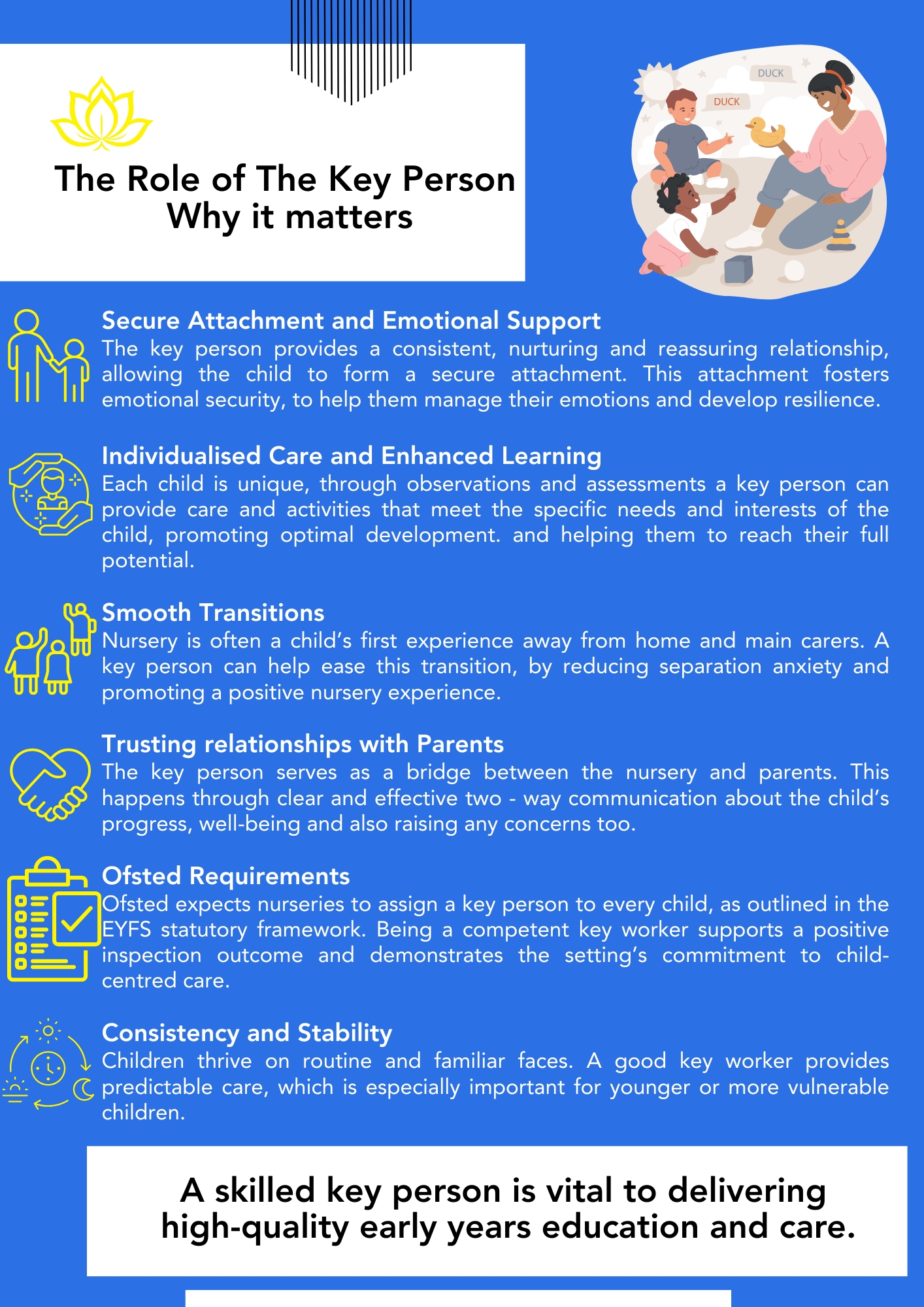
What do Ofsted Reports capture?
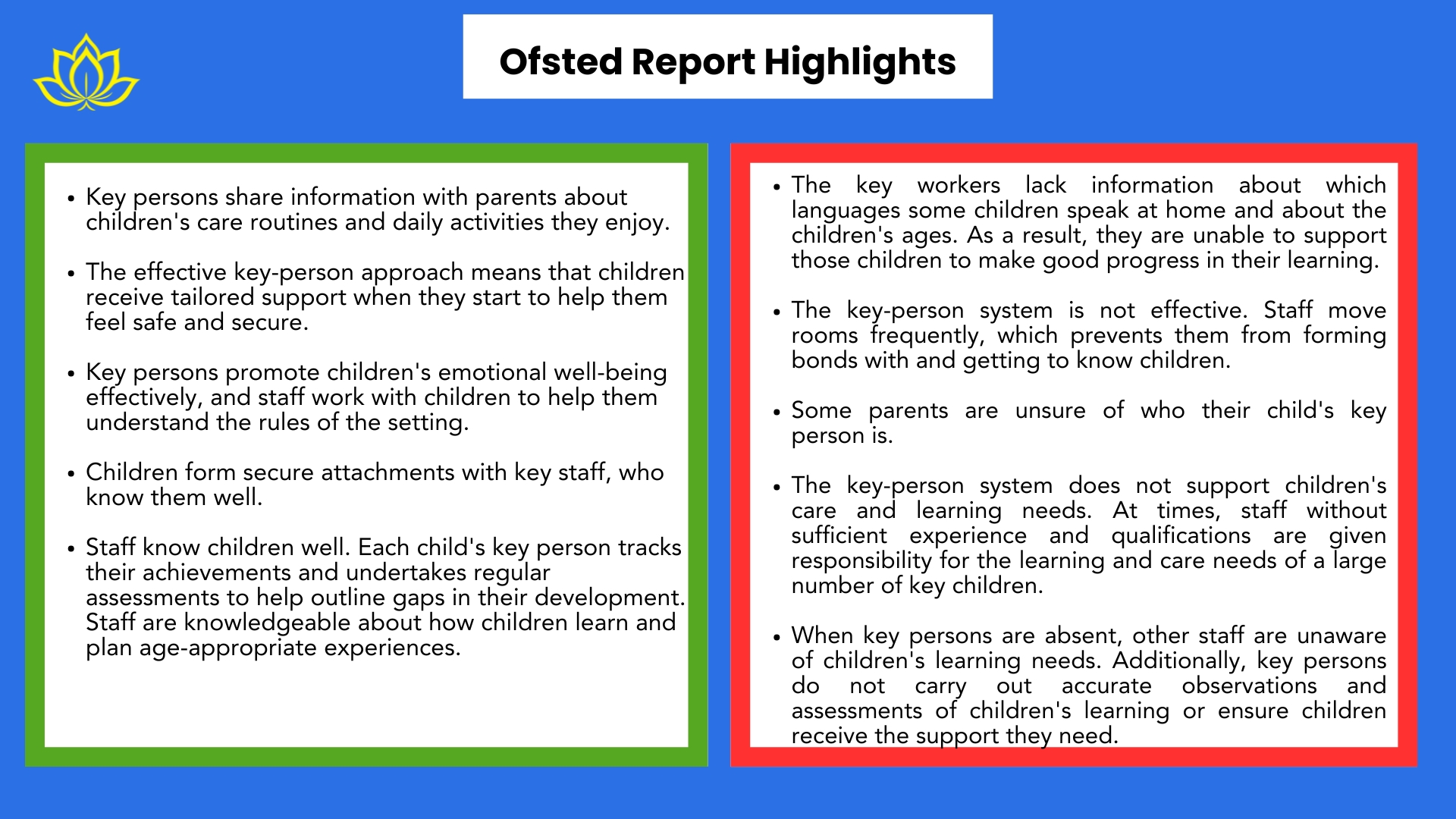
Reflect and learn
Task One – Where are you at in your practice right now? Which statement best reflects this…
- You are a sort after to be a key person regularly and positive feedback is received in frequently.
- You form strong attachments with key children and their family members.
- You form some attachment with key children and their family, but not enough.
- You have not formed an attachment with key children and their family.
Self-awareness leads to self-development so consider what you should do with this reflection and also consider if your reflection would be stronger or weaker than your colleagues and what you can do as a result of that too.
As an extension can you consider the following two questions:
- Can you think of 2 reasons why it is important for the key person in supporting continuity and attachment?
- Can you identify 2 reasons why parent/staff relationships vital in early years?
Discuss this with colleagues too, to enhance your understanding and promote professional conversations in your setting. This might lead to discussing what it means to be a key person to you and your team, below are some things that other Early Years educators have said.
What does it mean to the team?
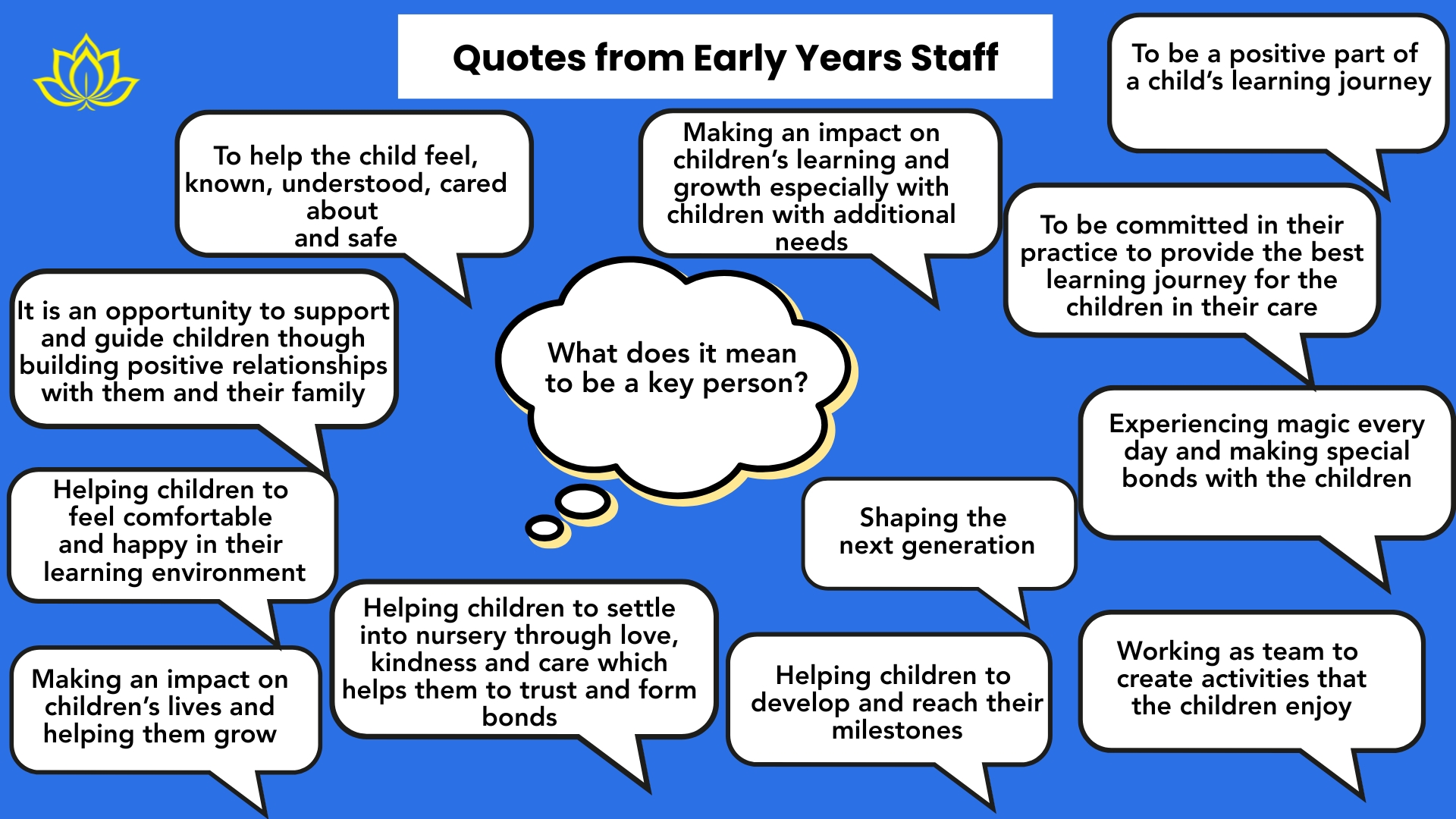
[ADD LINKS TO THE OTHER COURSE I THINK FOR THE POINTS WHERE YOU HAVE SAID THIS IN THE SLIDES]
The Triangle of Trust
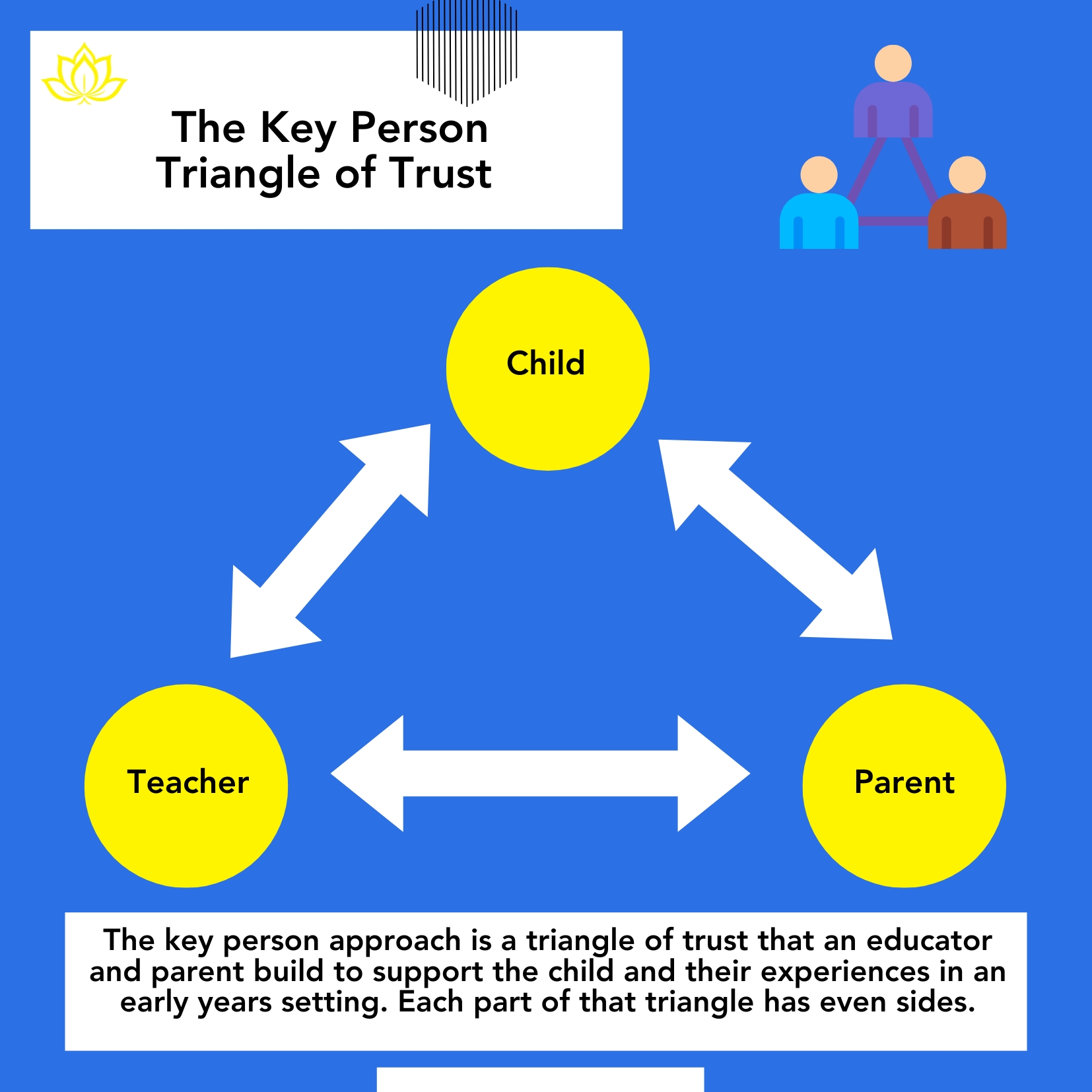
A final reminder [Should this go in the parent course?]
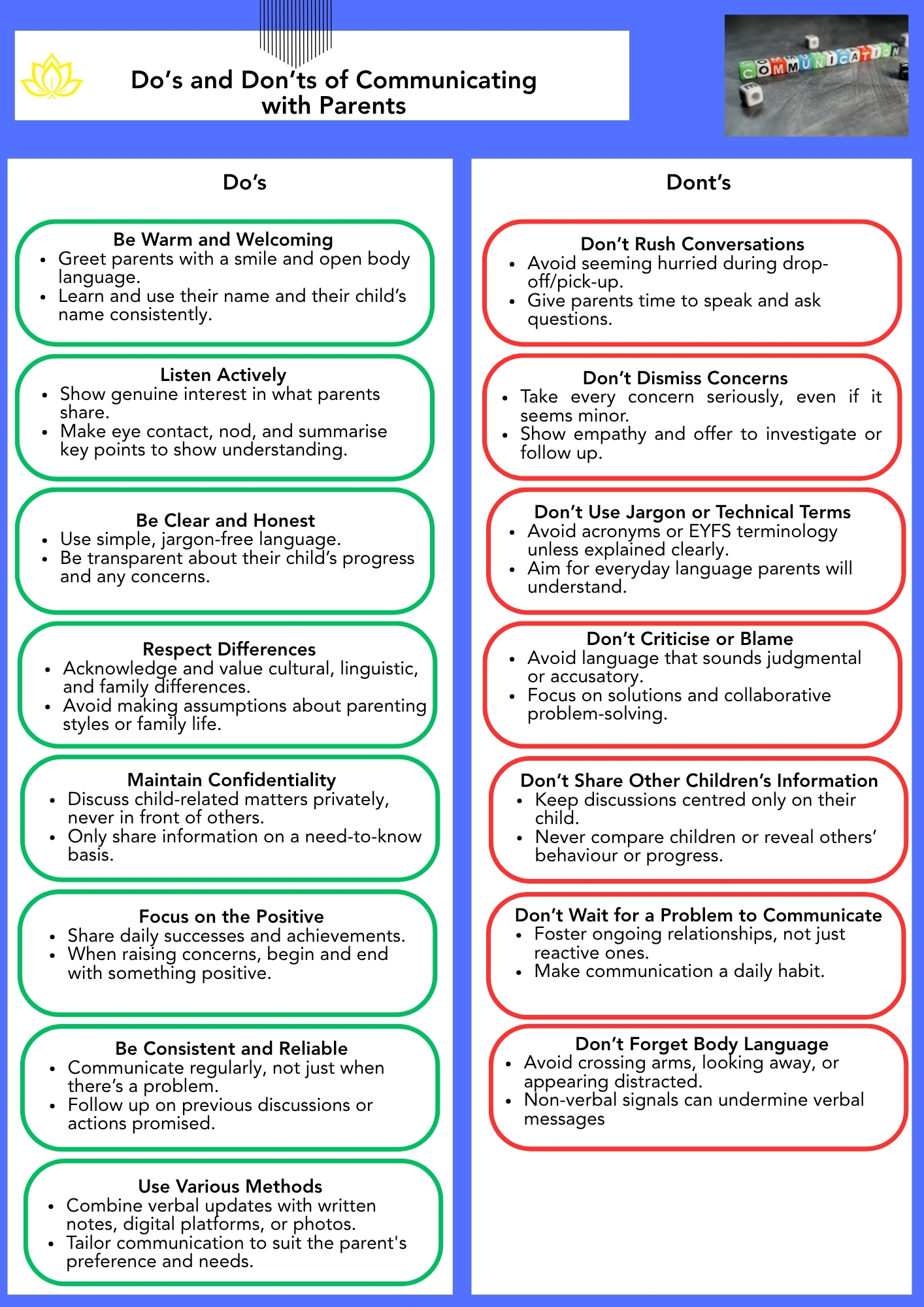
GIST – Good ideas for starting things…
- Ask yourself, what is working well in your parent relationships? What could be improved?
- Write an individual action plan with 2–3 specific steps to enhance parent engagement.
- Ask two colleagues if they only communicate through one parent if it is a 2 parent family and what could be adjusted in their approach if so?
Want to learn more?
- https://nurserystory.co.uk/the-key-person-approach/
- https://www.teachearlyyears.com/a-unique-child/view/attachment-the-key-person
- https://watchmegrow.uk/working-with-parents-the-triangle-of-trust/
- https://www.amazon.co.uk/Persons-Early-Years-Peter-Elfer/dp/0415610397
